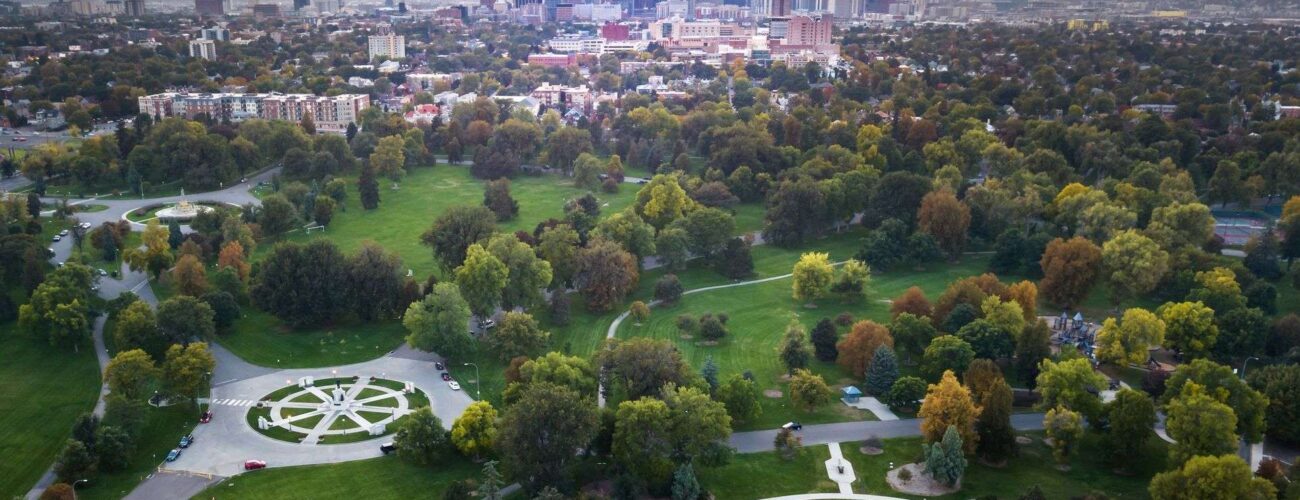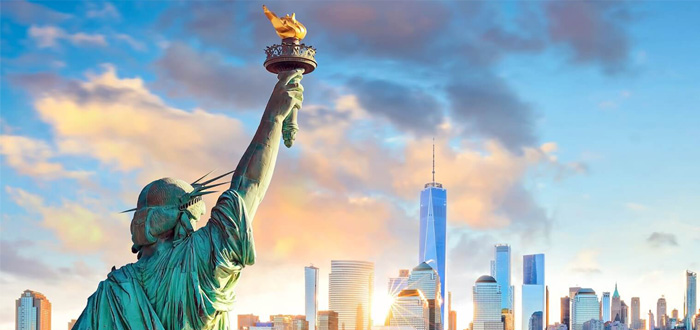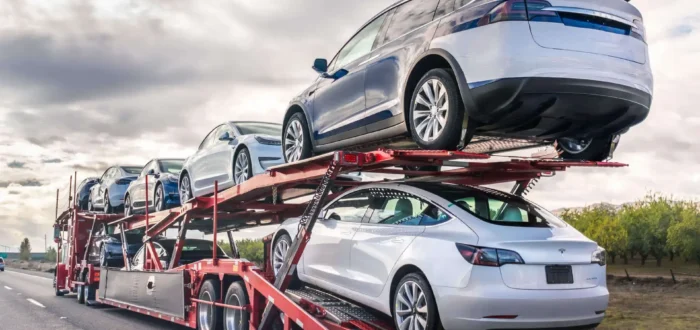

Moving to Colorado: Pros, Cons, and Other Things You Should Be Aware Of
Posted in City Guides on July 11, 2022
Centennial State has witnessed significant population growth in the past years – it seems like many people have realized how many benefits they can gain after moving to Colorado. Are you considering the move as well? We prepared the list of the most important things to know before determining if this place is your right match – let our comprehensive guide help you decide.
Pro: Centennial State Has High Economic Growth So Consider This Before You Invest in Cross-Country Moving Services
According to WalletHub, CO comes sixth in the country regarding economic strength and performance, which can bring you plenty of relocation benefits. States with stronger economies can place more money on healthcare and education, bringing more investments; they offer significant economic prosperity and diverse job opportunities. So, is moving to Colorado a good idea? Yes – there is no doubt Colorado’s one of the states that will provide you with an amazing quality of life.
CO’s unemployment rate is the same as the national average (3,6%), but it’s expected to drop even more in the future. Colorado Business Economic Outlook predicts job growth for 2022 in the following sectors:
- Hospitality and leisure,
- Mining and natural resources,
- Construction,
- Finance,
- Manufacturing,
- Health and education services,
- Government services,
- Utilities, transportation, and trade,
- IT.
A healthy job market is probably one of the main reasons people decide to move here. Securing a job in a new city shouldn’t be an issue, no matter the part of the CO you end up choosing. Moreover, there is a significant possibility that you’ll be able to get a job even before the move if you start your search early.
Con: High Cost of Living Is Not for Everybody’s Pocket
What are the cons of moving to Colorado? One of the most significant downsides is connected to Colorado’s living expenses. According to the Cost of Living Index for 2022, Centennial State ranks among the more expensive half of the US. With the 18th spot on the list, it brings higher costs than the national average.
The biggest part of CO’s expensiveness lies in the housing market. Zillow claims the current average home value is around $580,000, which is quite a lot compared to the nation’s median price of $345,000. Therefore, if you plan to become a homeowner, ensure you’re armed with excellent house-hunting tips to score the best deal. As for the rent, in Denver, the state’s capital, you’ll need to set aside between $1,500 and $3,200 a month, depending on the apartment’s location and size. As for Colorado’s taxes, they are close to the national average.
Of course, when you want to save money, you can choose smaller places with more affordable expenses instead of relocating to Denver or some other metropolis. What’s the cheapest city to live in Colorado? You can choose from Federal Heights, Brush, Lamar, Fort Morgan, and Sterling, among many others.
What Salary Do You Need to Live in Colorado After Moving Across the Country?
ZipRecruiter calculates the average salary to be around $65,700 a year. However, some jobs pay as low as $20,000 and as high as $145,000 – naturally, it all depends on your chosen niche, business location, and the company that is hiring. However, for a comfortable life without any financial worries, you’ll have to earn around $90,000 per year. Keep in mind that cities that pay the most are the state capital, Westminster, and Arvada, with the highest percentage of employees with above-average salaries.
What’s the Cost of Relocating to a New Home in CO?
CO’s expenses are not the only financial element to consider when creating a relocation budget. How much money should I have saved to move to Colorado? You must count the costs of getting cross-country moving services, supplies, and travel expenses, alongside the money you’ll need after the move. It can all be a bit financially overwhelming, resulting in evident anxiety about the move. Therefore, if you have enough time, be sure you find a few relocation hacks to help you save money.
Pro: You’ll Feel Welcomed From the Start After Moving Across the Country
One of the most important things to consider when relocating is the people living there. You’ll never be able to feel at home if unkind and rude people surround you – and that’s definitely not the case with CO. Coloradans are known as highly welcoming residents, friendly and warmhearted. While living in Denver or any other place, you’ll experience the perfect mix between Midwestern hospitality and East Coast’s laid-back attitude.
Excellent job opportunities may be the reason to move for many, but people and lifestyle are why many decide to stay. Making friends after the move will be easy and enjoyable, which will help you adapt faster to the new surroundings, especially if you’re relocating alone.

Con: Colorado’s Witnessing an Increase in Crime
Why is it not a good idea to move to Colorado? Sadly, CO is one of nine states with increased crime (compared to 2020), especially regarding property crimes. Safety is one of the most important factors to think of when deciding where to live, so it comes as one of the significant disadvantages. However, if you plan to live in CO, there are some safety precautions you can meet.
First, keep in mind that crime rates are not the same in different cities. For example, towns such as Brush, Frederick, Milliken, and Severance are considered some of the safest places. Metropolises, on the other hand, are less safe – but what to do when they are chosen to be your future home? If you’re moving cross-country to the capital, for example, research the safest neighborhoods in Denver – and stick to them after the move.

Pro: Public Transportation in CO Is Decent
Traveling in cities, around the CO, or even internationally is easily manageable, with a well-developed system of trains, buses, highways, and airports. Although some other places may have objectively better public transportation, you shouldn’t have any problems getting around, even in very populated areas, such as DEN or Colorado Springs. Keep in mind that the average commuting time in the state’s capital is 25.3 minutes, which is lower than the national average.
At the same time, when organizing a move, remember that Denver’s considered one of the most car-dependent cities in the US. Denverites love their vehicles – if you plan on becoming one, ensure you get excellent car shipping services and safely transport your car across the country.
Coloradans Are Known for Their Green and Healthy Living Habits
When it comes to environmental consciousness, CO comes in 21st place among all US states. However, categories such as water consumption, solar energy usage, alternative-fuel vehicles and stations, and green buildings place CO even higher on the list – it becomes the 10th state with the most evident eco-friendly behavior.
CO is considered a biking paradise. Excellent trail mapping, fantastic biking events, and gold (and even platinum) biking communities make it one of the most beloved places for all bike enthusiasts. It shouldn’t come as a surprise. After all, Coloradans are known for their love for recreation and the outdoors – and biking is an activity that connects them.

Con: You May Begin to Feel Altitude Sickness After Moving Cross-Country
Relocating to a place with a higher altitude all of a sudden can cause so-called altitude sickness. Even relocating to DEN, which reaches a little more than 5,000 feet in elevation, can be a significant change for those accustomed to sea level. The change is even more apparent when visiting some of the CO’s famous mountains.
High elevation implies lower oxygen levels in the atmosphere, and it takes time to adapt to it. In the meantime, you may experience symptoms such as headache, nausea, dizziness, tiredness, or even vomiting. In order to avoid altitude sickness, it is better to conquer heights gradually – if possible. Spend some time at lower altitudes before heading to the higher ones.
Quick Weather Changes Surprise Many People After Cross-Country Moving
Colorado’s location and elevation cause very unpredictable weather patterns. When relocating to CO, you can expect many sunny days (more than 300 per year), but you must also expect rain and thunderstorms at any time. Keep that in mind when getting packing services and deciding which clothes to bring.
Additional tip: add moisturizer to your household inventory list – CO’s air is very dry, and your skin may suffer from it.
Pro: There Is No Way You’ll Get Bored After Moving to Colorado With Long-Distance Movers
CO offers plenty of amazing things to do after the move, especially if you’re a nature lover and lead an active lifestyle. Hiking in Rocky Mountain National Park, surfing at Great Sand Dunes National Park, skiing in Aspen, or rafting at the Arkansas river – those are some of the most popular activities to enjoy after the move. And who wouldn’t want to visit the palace called the Garden of the Gods? Many of Colorado’s most famous attractions are nature-related, and it shouldn’t come as a surprise – an abundance of natural beauty makes CO exceptional.
However, it’s not all CO has to offer. Ghost towns and historical sites, such as Mesa Verde National Park and Dinosaur National Monument, are just some of the places you should visit at least once. In the meantime, make sure you catch a concert at the world-renowned Red Rocks Amphitheatre and enjoy CO’s lively cultural scene and many unique breweries.
If you need some more guidelines for places worth visiting after the move, take a look at the video below:
Choose the City You Like the Most, and Contact Cross-Country Movers
When relocating to a new state, it’s essential to take some time and consider which city suits you the most. Not all future Coloradans have the same wishes, needs, and possibilities. When looking for the best place for yourself, here are some to take into consideration:
Need a Safe City When Moving to Colorado From Florida? Pick Erie
Eris is one of the best places to raise a family, not only in CO but the whole country. It’s one of the safest places to live in, with plenty of excellent schools and a vibrant cultural scene. Additionally, remember that it’s only an hour away from the state’s capital.
Telluride Is Exceptionally Beautiful
If you’re looking for a place with the most beautiful scenery, you’ll easily find it in Telluride. Located at the bottom of the San Juan Mountains and enriched with Victorian-era buildings, it offers a unique storybook feel. However, the spectacular mountain view and fantastic nature are not only exceptional to look at – it provides numerous possibilities for engaging in outdoor activities.
If You’re a Millennial Moving to Colorado From California, Choose Denver
State’s cultural hub and one of the best cities for millennials, DEN provides endless possibilities when it comes to entertainment. Interesting museums, amazing sports venues, top-notch shopping streets, and a brewery scene like no other – you’ll find it all in the state’s capital. With plenty of things to do in Denver at night (and day), many exciting things to do with kids, and numerous romantic things to do with a partner, this city has everything for everyone. If you don’t mind Denver’s cost of living, all you have to do is choose between the best neighborhoods to live in Denver, contact Denver long-distance movers, and enjoy.
If You’re Moving to Colorado From Texas and Looking for Affordable Housing - Choose Lamar
If affordability is your main concern, know that the average home price in Lamar is around $123,000 (according to Zillow). Combine this amazingly low price with a good school system, low crime rates, decent nightlife scene, and friendly people, and you’ll realize that it truly is one of the finest places to live in CO.
Once You Know All the Moving to Colorado Pros and Cons, Find the Best Long-Distance Moving Company
As you can see, the advantages of relocating to CO easily top the downsides. When you realize how much you can gain after the move and start planning for this step, make sure to contact some reliable cross-country movers to help you move efficiently. You’ll clearly be relocating to some of the finest places in the US. It’s only natural to let only the most experienced and skilled relocation team be responsible for the move and provide you with the ultimate relocation experience.
FAQ
What Is It Like to Live in Colorado?
The state is known for its breathtaking mountain ranges, pristine forests, and crystal-clear lakes, making it a haven for hikers, skiers, and nature lovers alike. Colorado also boasts a thriving cultural scene, with a diverse range of arts, music, and culinary offerings. The state’s cities are vibrant and bustling, while its small towns offer a more laid-back, community-oriented lifestyle. With a relatively mild climate and plenty of sunshine, Colorado is a great place to call home for those who love adventure, beauty, and a healthy, active lifestyle.
What Is the Cost of Living in Colorado?
Generally speaking, living in the Denver metro area or other larger cities like Boulder or Colorado Springs tends to be more expensive, while smaller towns and rural areas may be more affordable. Housing costs in Colorado can be high, with median home prices well above the national average. However, the state does not have a statewide sales tax, which can help offset some of the higher costs. Overall, while Colorado may not be the most affordable state to live in, its stunning natural beauty and many attractions make it a desirable place to call home for many people.
What Are the Job Opportunities in Colorado?
The state is home to several major employers, including aerospace companies, technology firms, and healthcare providers. The energy industry is also a significant contributor to the state’s economy, with natural gas and oil production being major drivers of job growth in some areas. Outdoor recreation and tourism are also important sectors, with many job opportunities in ski resorts, national parks, and other recreational areas. Overall, Colorado’s job market is relatively strong, with low unemployment rates and a growing population driving demand for skilled workers in a variety of fields.
How Is the Climate in Colorado?
Colorado has a semi-arid climate with four distinct seasons. The state is known for its sunny skies and relatively low humidity, which can make for pleasant weather year-round. However, temperatures and weather conditions can vary widely depending on the region and elevation. The eastern plains of Colorado tend to be hotter and drier, while the high mountain regions can be much cooler and receive heavy snowfall in the winter months. The state is also prone to severe weather events like thunderstorms, tornadoes, and wildfires.
What Are the Best Cities/Towns to Live in Colorado?
Denver is the state’s largest city and offers a vibrant urban lifestyle with a thriving arts and culture scene. Boulder is a college town known for its stunning natural beauty and progressive community. Colorado Springs is a great option for those who love the outdoors, with easy access to hiking, biking, and skiing. Fort Collins is another college town with a strong focus on sustainability and a thriving craft beer industry. If you’re looking for a more laid-back lifestyle, smaller towns like Durango, Crested Butte, or Salida might be more your speed. Ultimately, the best place to live in Colorado will depend on your personal preferences, but there are plenty of great options to choose from.
What Are the Best Outdoor Activities to Do in Colorado?
Hiking is one of the most popular activities, with stunning trails and vistas throughout the state, including the famous Rocky Mountain National Park. Colorado is also home to world-class skiing and snowboarding destinations, such as Vail, Breckenridge, and Aspen. For those who enjoy water activities, rafting, kayaking, and fishing are popular pastimes on the state’s many rivers and lakes. Mountain biking, rock climbing, and camping are also popular activities. With so much natural beauty to explore, Colorado is the perfect place to get outside and enjoy all that the great outdoors has to offer.
What Are the Education Opportunities in Colorado?
The state’s flagship university, the University of Colorado, has campuses in Boulder, Colorado Springs, and Denver and is known for its strong research programs. Other top universities in the state include Colorado State University and the University of Denver. Colorado also has a robust network of community colleges and trade schools, which offer programs in areas like nursing, welding, and renewable energy. Additionally, Colorado has a strong focus on early childhood education, with many high-quality preschool programs and resources available to families.
What Are the Taxes Like in Colorado?
Colorado’s tax system includes a flat income tax rate of 4.55%, which applies to all income levels. The state also has a relatively low sales tax rate of 2.9%, but local taxes can increase that rate significantly, depending on where you live. Property taxes in Colorado are based on the value of the property and are assessed at the county level. Homeowners may qualify for certain exemptions or credits, such as the Homestead Exemption, which can help lower their tax burden. Colorado does not have an estate or inheritance tax, but it does have a state-level estate recovery program to recoup Medicaid costs from deceased individuals’ estates.
How Do I Go About Finding Housing in Colorado?
One good place to start is by researching different neighborhoods and communities online to get a sense of what might be the best fit for you. Real estate websites like Zillow or Redfin can be helpful for browsing available homes or apartments. You can also work with a local real estate agent who can help you navigate the market and find properties that meet your needs and budget. Additionally, many Colorado communities have active Facebook groups or neighborhood associations that can be a great resource for connecting with local residents and learning more about housing options.
What Should I Know About the Legal Process of Moving to Colorado?
If you’re moving across the country, you’ll need to obtain a Colorado driver’s license and register your vehicle within 30 days of establishing residency. You’ll also need to register to vote in Colorado and update your voter registration information. When it comes to housing, you should be prepared to sign a lease or rental agreement and provide proof of income or other financial information to secure housing. If you’re purchasing a home, you’ll need to work with a real estate agent and lender to secure a mortgage and complete the homebuying process. Additionally, Colorado has specific laws around things like cannabis use, firearm ownership, and outdoor activities, so it’s important to research and understand any relevant laws and regulations before you organize cross-country moving.
Are There Any Specific Laws or Regulations I Should Be Aware of When Moving to Colorado?
Yes, there are several specific laws and regulations you should be aware of when moving to Colorado. One of the most notable is the state’s legalization of recreational marijuana, which has specific laws around use, possession, and distribution. Colorado also has specific laws around gun ownership and concealed carry permits, so it’s important to research and understand these regulations if you plan to own or carry firearms. Additionally, Colorado has specific regulations around outdoor activities like hiking, camping, and hunting, including permits and restrictions in certain areas.
What Are Some of the Cultural and Social Norms in Colorado That I Should Know About?
One common cultural value in Colorado is a love of the outdoors and an appreciation for nature, which is reflected in many aspects of life, from recreation to art and music. Colorado is also known for its friendly and laid-back attitude, with a strong sense of community and a welcoming spirit. Additionally, Colorado has a growing food and beverage scene, with a particular focus on craft beer and local ingredients. When it comes to social interactions, people in Colorado tend to be relatively informal and easygoing, but it’s always a good idea to be respectful and polite in any new social or professional situation.
How Do I Register My Vehicle After Moving to Colorado?
First, you’ll need to obtain a Colorado driver’s license if you haven’t already done so. Then, you’ll need to provide the Colorado Division of Motor Vehicles (DMV) with proof of ownership of the vehicle, such as a title or bill of sale, and proof of insurance. You’ll also need to have your vehicle emissions tested if it is registered in certain counties. Finally, you can visit a local DMV office to complete the registration process and receive your Colorado license plates and registration card.
What Are the Top Tourist Attractions in Colorado?
Some of the top attractions include Rocky Mountain National Park, which offers stunning mountain scenery and wildlife viewing opportunities. Other popular destinations include the ski resorts of Vail, Breckenridge, and Aspen, which offer world-class skiing and snowboarding, as well as summer activities like hiking and mountain biking. The historic mining town of Telluride is another popular destination, known for its charming Victorian architecture and stunning natural setting.
Denver is a cultural hub, with attractions like the Denver Art Museum, the Colorado State Capitol, and the Denver Botanic Gardens. For those interested in history, Mesa Verde National Park offers a fascinating glimpse into the lives of the Ancestral Pueblo people who lived in the area over 1,000 years ago.
How Do I Make Friends and Get Involved in the Community After Moving to Colorado?
One of the best ways to meet new people is to participate in activities and events that interest you, such as outdoor recreation, arts, and culture, or volunteer work. Joining local clubs or organizations can also be a great way to connect with like-minded people and get involved in the community. Social media groups and local meetups can also be helpful for finding events and activities in your area. Finally, be open and friendly with your neighbors and coworkers, and don’t be afraid to strike up a conversation or ask for recommendations on things to do in the area.





